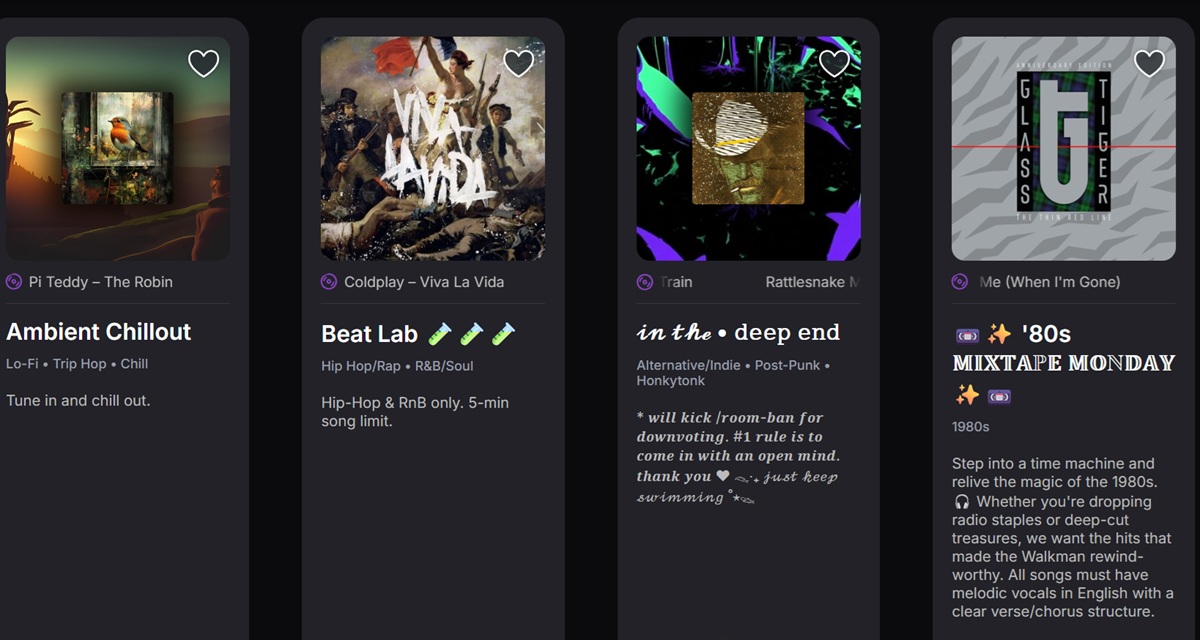Hangout.fm is bringing back the days of musical entertainment with its all-digital platform that is like a Roblox for music.
It’s like a virtual nightclub that allows people to create virtual rooms with human DJs — spaces where they can listen to music and enjoy things like virtual disco balls, competition leaderboards, DJ battles and virtual goods. The company has also raised $8 million. So far, Founders Fund and others are investors.

Unlock premium content and VIP community perks with GB M A X!
Join now to enjoy our free and premium membership perks.
![]()

![]()